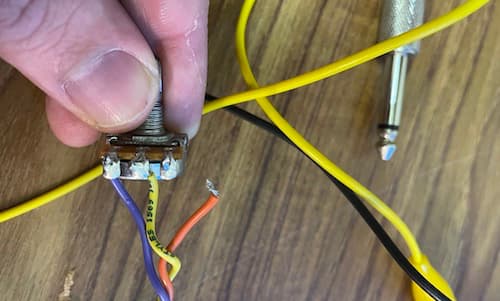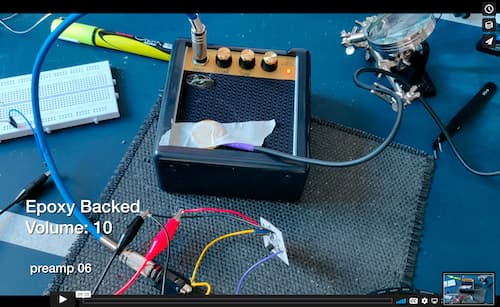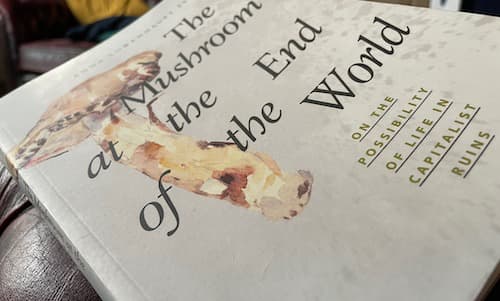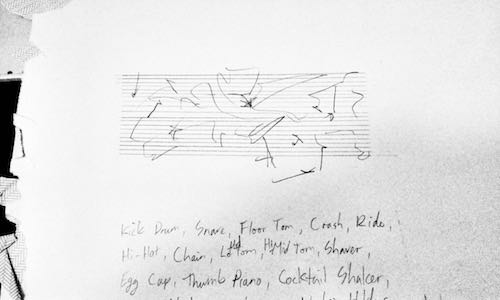I’m hoping to try a little experiment. Things have been quiet here as I’ve temporarily relocated to Berlin and have been sorting things out and getting set up. I’m also hoping to start a PhD in October and with the last round of funding applications due any minute I’ve had other priorities. Still, I’m starting to make time again for reading, after a few indulgences with Ursula K Le Guin and William Gibson I’m on to some heavier, academic stuff.
Rather than try to write any detailed critiques or appraisals of what I’m reading, for the time-being at least, I just want to pose small thoughts, provocations and responses. More of a thinking out loud than academic response. Hopefully this will allow for something a little briefer and more playful that I can return to in a more considered way at a later date.
I’ve just started reading Joseph Nechvatal’s ‘Immersion Into Noise’ (2011) which, very early on contains the following Deleuze and Guattari quote (and which these thoughts will have nothing to say on beyond this quote):
What is real is the becoming itself, the block of becoming, not the supposedly fixed terms through which that which becomes passes. — Gilles Deleuze and Félix Guattari, A Thousand Plateaus
I’d like to consider this in terms of Improvised Music Practice. I’m going to leave that term wide open in terms of types, idioms, non-idioms, genres, styles etc. of Improvised Music Practice and all the other attendant forms of labor and participation (audience, electronics DIYer, experimental instrument builder, promoter etc.) Instead I’d like to suggest a commonality. Forms of music practice centred around spontaneity of creation. I’m wary of a view of creativity that suggest thoughts put into practice so I will simply generalise this as a gestural process of doing (this may later have problems but it’s an abstraction for the purposes of my immediate thinking).
Coming back to the above quote perhaps we can bootstrap this generalisation as creative activity that centres becoming rather than the things that have become. Long standing questions of the role of recorded artefacts of improvisation add challenge to this rationale but I would posit that these documents, when employed within improvised music practice are frequently an extension of processes which centre becoming rather than replacing these processes with a renewed focus on what has become (the role these may go to play in defining improvised music history and practice not withstanding).
Why then do we bother with distinctions between forms of improvised music practice? From Jazz improvisation to Free Improv, improvised harsh noise to the No Audience Underground?
My thinking is simply dissatisfaction. Critical engagement with the boundaries that calcify around such practices. Free Improvisers such as members of AMM were deeply influenced by Jazz musicians but recognised that, not being Black Americans, the boundaries around Jazz didn’t fit a white European perspective (and without attending to such problematics would easily reinforce forms of colonial power and cultural appropriation). Likewise, Free Improvisation, via characters such as Cardew and The Scratch Orchestra has a lot of relevance to challenging compositional authority imposed upon musicians within a Western Art Music tradition and various political discourses of the time. Whilst there are huge overlaps, Free Improv has less to say about the non-hierarchical and participatory social functions of the No Audience Underground (rather than the non-hierarchical and participatory aspects of art music ensembles). Whilst there is little that goes on at an average NAU show organised in the back room of a pub or a practice space in Sheffield, Leeds, Manchester etc. that differs significantly from the histories of Fluxus, free improv and psychedelic rock, they often feel a far cry away from the somewhat poe-faced arts council funded and culturally legitimised world of Free Improv shows at an arts centre or part of a Jazz festival. The fact the NAU shows take place primarily within a welcoming and open yet familial and insular social context is a significant differentiation. It feels somewhat naive to say but it’s for the ‘people’ more that for the ‘culture’ - yet at the same time there is a recognition that culture is something you make for yourselves rather than wait for someone else to make for you.
I’m really not suggesting any of these forms are radically different from each other yet there is a radical praxis in critiquing and developing different forms of or social environments for improvised music practice. What I want to suggest then is that this radical praxis is itself part of the centring of becoming within improvised music practice. A part of the ‘doing’ of improvisation.
Surely similar forces are at play in various sub-cultural shifts and genre fractures throughout forms of popular, classical, art and academic music (not to mention other cultural forms, scientific branches and philosophical ‘turns’). It’s not so much a case of saying improvised music is radically different, than a case of saying that such radical praxis is foregrounded by the nature of improvised music practice itself.




